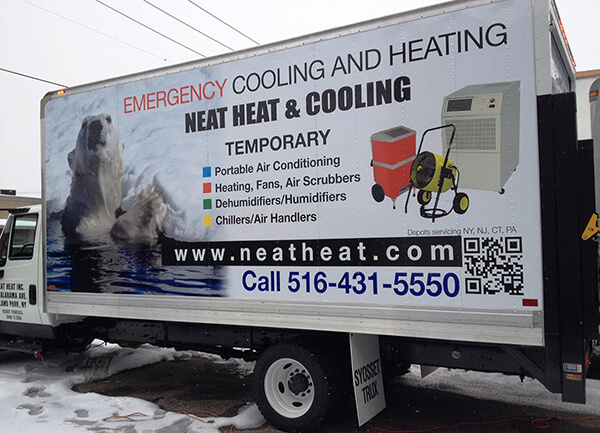Cooler temperatures are approaching as heating season begins, and you may find yourself without the necessary heating in place. Have you considered the effects of not having appropriate heating in place and what it could mean to your business?
The best type of temporary heating equipment depends on various factors, such as the size of the space to be heated, the duration of the heating, the outside temperature, and the fuel source available.
Keeping a site heated in cold temperatures is not only necessary for employees’ comfort and productivity but could also affect the structure of your space.
Neat Heat and Cooling’s Temporary heating solutions have a wide range of use for all different types of business and organizations.
Whether you need a short-term or long-term heat solution Neat Heat and Cooling can provide the relief you need. We also have temporary heat that is versatile enough for extremely large jobs.
When selecting a temporary heating solution, there are several key factors to consider, including:
Size of the space: The size of the space to be heated is a crucial factor in determining the type and number of heaters needed. A larger space will require more heat output and may need multiple heaters.
Heat output requirement: The heat output requirement will depend on the desired temperature, the insulation of the space, and other factors such as the presence of windows and doors.
Fuel type and availability: Temporary heaters can be powered by electricity, propane, kerosene, or diesel. Consider the availability of the fuel type, as well as the cost and safety of each fuel source.
Power source: Electric heaters will require a nearby electrical outlet, while propane, kerosene, and diesel-powered heaters will need a fuel source. Ensure that the power source is easily accessible and can meet the heating requirements.
Ventilation: Temporary heaters can emit carbon monoxide, so it is important to ensure adequate ventilation in the space being heated. Safety: Safety should be a top consideration when selecting a temporary heating solution. Consider factors such as the stability of the heater, the presence of safety features such as tip-over switches and automatic shut-off, and the potential for fire hazards.
Cost: The cost of temporary heating solutions can vary greatly depending on the type of heater, fuel source, and other factors. Consider the total cost of ownership, including fuel and maintenance costs, when making a decision.
As the heating season begins, factoring in whether or not you require temporary heat should be a consideration. Neat Heat and Cooling can support you in your planning process.
We service small and large heating equipment needs starting with a variety of Electric Heaters, Natural Gas and Kerosene Heaters, Indirect Fired Heaters and Direct Fired Kerosene Heaters, Generators, Electric Heater / Generator Combo and Steam Tables on Wheels.
Can deliver same day solutions to your location! Learn More
Temporary Portable Heating that is ready to work on a moment’s notice is what you need.

